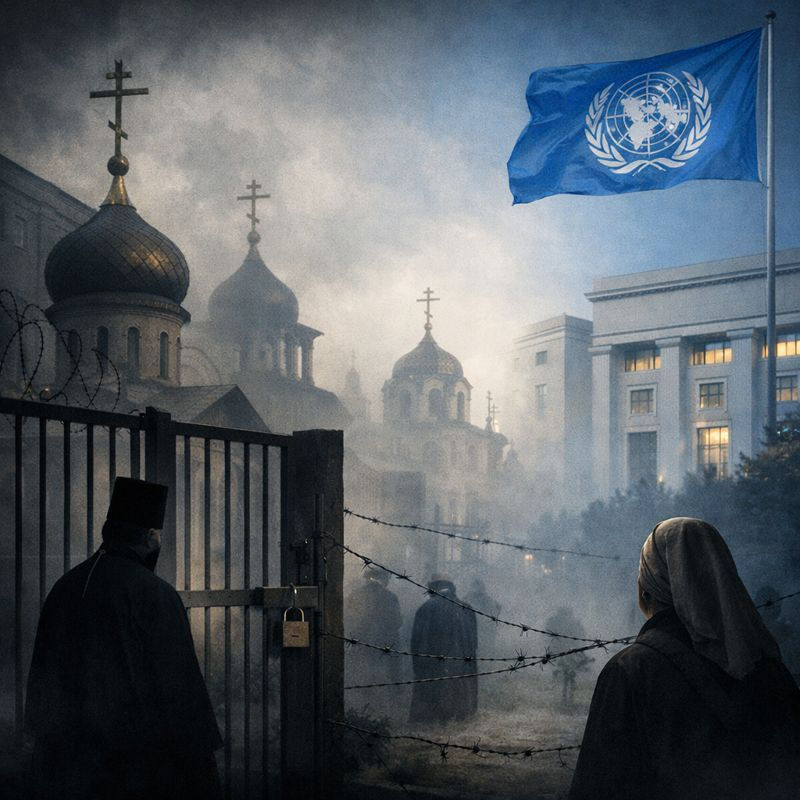Analysis of Global Human-Rights Trends at the 60th Session of the United Nations Human Rights Council
- JPTi

- Nov 21, 2025
- 4 min read
Updated: Nov 23, 2025

On 21 November 2025, Justice pour Tous Internationale (JPTi) published its comprehensive analysis of the Sixtieth Session of the United Nations Human Rights Council, convened in Geneva from 8 September to 8 October. The report offers a structured and in-depth examination of the evolving landscape of multilateral human-rights deliberation at a moment when geopolitical pressures, competing narratives, and strategic sensitivities significantly shape the Council’s ability to address complex human-rights concerns with impartiality and methodological clarity. Through a meticulous review of the written submissions, oral interventions, side events, and parallel civil-society activities, the publication reaffirms JPTi’s commitment to principled, evidence-based engagement and the promotion of human dignity through lawful, balanced, and transparent analysis.
The report situates HRC60 within a broader global context marked by recurring challenges of transitional justice, accountability for grave violations, civilian protection in conflict settings, and the contraction of civic space across multiple regions. Within these thematic areas, the Council exhibited both institutional resilience and vulnerability. Civil-society actors played a central role in documenting abuses and ensuring continued scrutiny, yet the influence of political alignments and strategic interests remained evident in the uneven distribution of attention across country situations.
A central part of the publication focuses on developments relating to the People’s Republic of China, Hong Kong, and the case of Mr Jimmy Lai. The report identifies a clear and systemic disparity between the written submissions submitted by NGOs based in China and the substantive advocacy advanced through oral interventions and side events. The written submissions did not raise any human-rights concerns and did not bring issues of relevance to the attention of the United Nations or the international community. Instead, they attempted, without persuasive effect, to highlight selective positive developments, while avoiding any acknowledgment of systemic challenges or institutional shortcomings. These documents thus contributed little to the Council’s deliberative process and exposed a deeper structural weakness in the Council’s consultative framework.
This absence of substantive engagement in the written record contrasted sharply with the interventions of independent civil-society organisations. Through oral statements, detailed reports, and participation in side events, these organisations provided documented evidence concerning arbitrary detention, restrictions on civic space, pressures on legal professionals, constraints on independent journalism, and broader patterns affecting Uyghurs, Tibetans, Hong Kong residents, and human-rights defenders across China. These contributions ensured that critical concerns remained visible, even when the formal documentation did not reflect them, demonstrating the adaptability of civil society in politically complex environments.
The report underscores the importance of several key side events, including the session held on 9 September addressing the systemic nature of arbitrary detention in China, and multiple interventions concerning conditions in Hong Kong. These events reaffirmed the crucial role of solidarity, rigorous documentation, and legal argumentation grounded in United Nations standards. They also highlighted the increasing reliance on oral advocacy as an essential counterbalance to the limitations introduced by politically curated written submissions.
A further dimension of the publication concerns the renewed, though diplomatically measured, attention given during HRC60 to the rule of law, judicial independence, and fair-trial guarantees in Hong Kong. The High Commissioner’s global update, supported by interventions from several states, reflected an extensive body of findings from United Nations Special Procedures and treaty bodies since 2018. These mechanisms have repeatedly urged alignment between national-security legislation and the People’s Republic of China’s international obligations, particularly regarding procedural safeguards, judicial transparency, access to legal counsel, and the treatment of detainees.
The report stresses that communications issued by Special Procedures are advisory in nature, not judicial determinations, and must therefore be interpreted within the framework of domestic constitutional principles, including those governing Hong Kong’s judiciary under the Basic Law. JPTi emphasises that constructive engagement between international mechanisms and domestic courts constitutes a more effective approach than adversarial rhetoric, which risks undermining trust and diminishing opportunities for reform.
Throughout the publication, JPTi reflects on the institutional implications of the developments observed during HRC60. It highlights the growing presence of written submissions from NGOs based in China that avoid substantive human-rights assessment, noting that such practices, while formally permissible, undermine the authenticity and credibility of civil-society participation. By creating the appearance of pluralism without contributing to meaningful analysis, these documents weaken the evidentiary value of the Council’s written record and highlight the need for strengthened safeguards to ensure integrity within the consultative process.
In parallel with its monitoring of HRC60, JPTi participated in the conference on Scotland’s right to self-determination held on 18 September at the Palais des Nations. This engagement forms part of the organisation’s broader mandate to promote lawful governance, equality before the law, and adherence to the international legal framework governing decolonisation and self-determination under the UN Charter and General Assembly Resolutions 1514 and 1541.
The publication concludes by observing that the Sixtieth Session of the Human Rights Council represents both a challenge and an opportunity for the international human-rights system. It exposes the consequences of selective scrutiny and simulated pluralism, yet it also demonstrates the resilience and integrity of independent civil-society actors who continue to uphold transparency, accountability, and the universality of human rights. JPTi reaffirms that the strengthening of the multilateral human-rights system requires even-handed analysis, respect for sovereignty, and dialogue grounded in international law rather than political expediency. In an increasingly complex geopolitical landscape, evidence-based advocacy and principled engagement remain indispensable tools for advancing justice, equality, and human dignity.
#HumanRights #UNHumanRights #HRC60 #UnitedNations #RuleOfLaw #InternationalLaw #CivilSociety #HongKong #ChinaHumanRights #CivicFreedoms #FreedomOfExpression #JudicialIndependence #JimmyLai #ArbitraryDetention #JPTi #JusticeForAllInternational #HumanRightsAdvocacy #InternationalAccountability #Multilateralism #GoodGovernance #Transparency #HumanDignity







